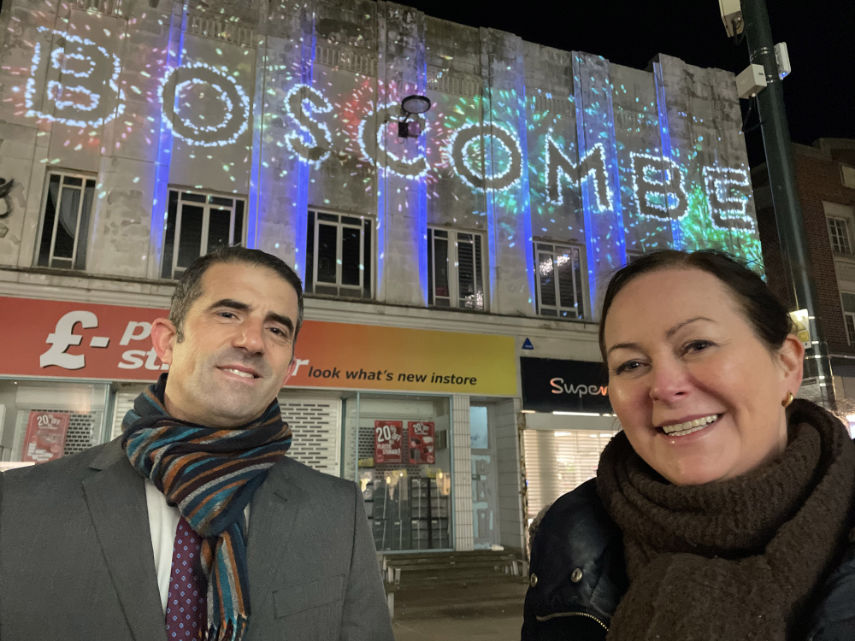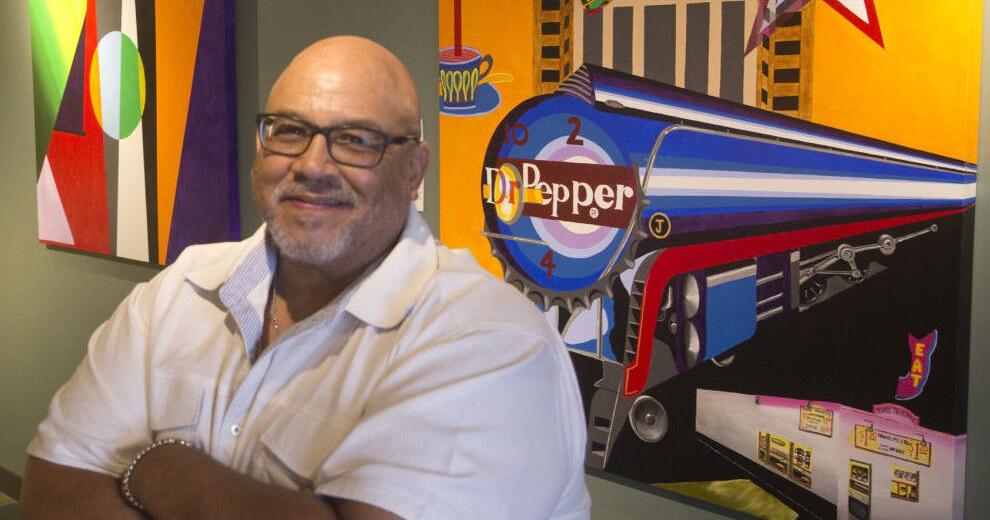Vancouver’s Jack Poole Plaza became a ground for competing political events and protests ahead of the Beijing Winter Olympics in February 2022
British Columbia officials should keep the Olympic cauldron in downtown Vancouver in darkness during the Beijing Olympics in February, say British Columbians from minority groups facing human rights abuses. man in China.
If, as it seems, the Canadian Winter Olympians are heading to Beijing, that shouldn’t be cause for celebration, says Metro Vancouver resident and activist Turnisa Matsedik-Qira.
If the authorities decide to light the cauldron, “it means for the Uyghurs and all human beings that they support the genocide,” explains Matsedik-Qira. “Boycotting means a lot. ”
On Monday, the United States announced a diplomatic boycott of the Winter Games over continued human rights violations, including alleged acts of genocide against Uyghur Muslims in the disputed East Turkestan Territory, or Xinjiang Autonomous Region. Last February, the genocide against the Uyghurs was unanimously recognized by the House of Commons of Canada (the federal cabinet abstaining).
Canada followed America, Australia and the UK in the boycott on Wednesday, which means no government official will attend the Olympics as a representative. The athletes, however, intend to participate.
“We have a lot of testimonials; very reliable resources show that a genocide is underway, but people are still celebrating the upcoming Olympic Games in Beijing, â€Matsedik-Qira said.
As such, she argues that Vancouver’s downtown Olympic cauldron should remain dark, unlike most Games since those in the city in 2010.
Otherwise, lighting the cauldron as an outward display of support for the athletes would be to reject the growing range of abuses committed by the Chinese Communist Party (CCP) against minority groups and dissidents, if not the hundreds of millions of people. who fall under the sway of authoritarianism, say critics like Matsedik-Qira.
Matsedik-Qira is a Uyghur born in Hotan, East Turkestan, who immigrated to Canada as a skilled worker in 2006. She says her people have always faced repression but conditions over the past decade have worsened. deteriorated; she is no longer able to communicate with her brothers, who may or may not be detained in internment camps, which the Chinese government does not deny but justifies as educational facilities to fight against terrorist ideologies that threaten self- saying a precious energy corridor.
Her last visit to her birthplace was in 2014, when she saw that it had become illegal for ethnic Chinese to greet Uyghurs in their own language. The hospital nurse and mother of two now spends her free days protesting outside the Granville Street compound in China.
Tensions are high these days, says Matsedik-Qira. This week, she and her dedicated little group were spit on and called “swear words” by a person of Chinese descent driving a delivery van as she was pulled over at a nearby intersection. She says Vancouver police are investigating the incident.
Who is responsible for lighting the cauldron?
The decision to light the cauldron ultimately rests with the Minister of Tourism, Arts and Culture, Mélanie Mark. She is the head of the BC Pavilion Corporation (PavCo), the provincial crown corporation responsible for the Vancouver Convention Center, whose cauldron is located in the Jack Poole Plaza.
The only post-2010 Olympics where the cauldron was not lit are the 2012 Summer Games, for unclear reasons. However, the cauldron has been lit during the last four Olympic Games (Sochi 2014, Rio 2016, PyeongChang 2018 and Tokyo 2021), with the sponsorship of FortisBC, which has paid thousands of dollars for technical costs and natural gas.
The cauldron was built by FortisBC in 2010 through a legacy investment and partnership with the Vancouver Olympic and Paralympic Organizing Committees.
Usually, officials present the lighting as a celebration of the athletes. A plaque next to the cauldron reads: “The flame symbolizes the values ​​that are at the heart of the Games and of Canadians: peace, friendship and respect.
FortisBC told Glacier Media that it has not yet considered sponsoring the flame and should follow PavCo’s instructions anyway.
Asked for an update on such a decision, PavCo told Glacier Media: “We are currently reviewing the situation surrounding the 2022 Games and working with a range of partners, including the Canadian Olympic Committee, to ensure that we celebrate the 2022 Games. athletes appropriately. We will keep you posted on plans as they are announced.
Glacier Media asked Mark if she supports lighting the cauldron for Beijing 2022.
“British Columbia supports the decision of the federal government, along with our allies, to stand up for human rights around the world,†said his ministry spokesperson.
“Our goal is to support the athletes who have worked their entire lives to get to this moment. Historically, the Jack Poole Plaza Olympic cauldron was lit to celebrate Olympic athletes. PavCo and the Province of British Columbia are working with a variety of partners, including the Federal Government and the Canadian Olympic Committee, to determine the next steps to ensure that we are celebrating our athletes appropriately this year.
“Symbolism is better than nothing,” says lawyer
This fall, the place of the cauldron was not immune to the apolitical stance that Chinese officials are touting for the next Games. The square has indeed become a land of competing interests – those associated with the Chinese Communist Party and pro-democracy activists.
It was October 2 when Minister of State for Commerce George Chow attended the plaza for a Huawei sponsored Olympic-style celebration and the Richmond-based Canadian Alliance of Chinese Associations, which publicly denounces any Olympic boycott.
On November 21, members of the Vancouver Hong Kong’s pro-democracy movement protested on the square alongside the Tibetans and the Uyghurs, to denounce what they call the “Genocide Games”.
Fenella Sung, a key member of Vancouver-based human rights group Canadian Friends for Hong Kong, also supports keeping the cauldron in the dark and speculates that pro-Beijing groups may lobby to light the cauldron. and could even offer a sponsorship.
“Even if it’s not taxpayers’ money, it’s still not fair because it’s a public institution. And it is a gesture that signifies the commitment of our government.
Sung says if the athletes are going to compete, then not giving the CCP a platform, like with cauldron lighting, is the least Canadians can do.
“People should remember that this is only a symbolic gesture. We must do more. The symbolism is better than nothing, however, but we can always demand that our federal officials do more, â€Sung said.
She adds that Canadians can choose not to watch the Games, which could affect the sponsors in the portfolio. In addition, Sung calls on Canadians to avoid buying products made in China.
“It’s something that we can engage in individually. “
The survey says …
The issue of alleged CCP abuses does not divide Canada. The vast majority of Canadians (84%) have a negative opinion of China, according to an Angus Reid poll released on December 7.
And a boycott has the support of most Canadians.
This month when Research Co. and Glacier Media Canadians asked, support for a full boycott of Beijing 2022 stood at 56% across the country. This figure rises to 59% among British Columbians.
A significant proportion of Canadians (70%) express concerns about the health and safety of Canadian athletes competing in the Beijing Winter Olympics.
The Canadian Olympic Committee did not respond to Glacier Media for comments on athlete safety. Glacier Media wanted to know the plan if an athlete is assaulted or sexually assaulted; should they go to the Beijing police or go home? Are athletes invited not to talk about human rights?
Foreign Minister Mélanie Joly told national media on Thursday that the Canadian team was discussing security measures during the Games.
As for Sung’s suggestion to boycott the Olympics and refrain from buying Chinese consumer goods, it seems to have strong support, according to Research Co.: “Only 32% of Canadians say they don’t. never refrain from buying products made in China, with two-thirds of residents (68%) saying they avoid buying Chinese products “all of the time” (15%), “most of the time” (20% ) or “sometimes†(33%).
In addition, 45% of Canadians “say they will make a conscious effort to refrain from watching the Games.”
 Welcome To Poole
Welcome To Poole
_w=1200_h=630.png?v=20220321141806)


